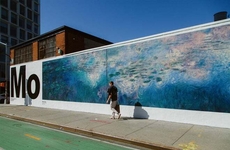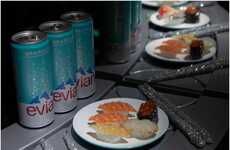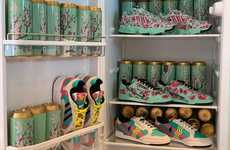
Lonely Whale's Museum of Plastic Boasts Selfie-Friendly Displays
Laura McQuarrie — June 17, 2019 — Eco
References: lonelywhale.org & thedieline
In support of its new campaign called 'Question How You Hydrate,' Lonely Whale created the Museum of Plastic pop-up in New York City. Over the past year, consumers have been drawn to a variety of experiential museums for learning about their favorite foods, products and brands—and taking selfies.
The Museum of Plastic helps to bring awareness to the pollution that's caused by single-use plastic water bottles alone, and offers solutions to the issue. The project also features work from partners like HP, reusable bottle maker S'Well and water brand Ever & Ever.
At the pop-up, visitors are able to take Instagram-ready photos with giant receipts that show the water bottle revenue by 2022 and whale tail replicas made out of aluminum water bottles.
The Museum of Plastic helps to bring awareness to the pollution that's caused by single-use plastic water bottles alone, and offers solutions to the issue. The project also features work from partners like HP, reusable bottle maker S'Well and water brand Ever & Ever.
At the pop-up, visitors are able to take Instagram-ready photos with giant receipts that show the water bottle revenue by 2022 and whale tail replicas made out of aluminum water bottles.
Trend Themes
1. Pop-up Museums - Pop-up museums provide an opportunity for experiential marketing of brands and social causes.
2. Plastic Pollution Awareness - Plastic pollution awareness campaigns offer opportunities for businesses to innovate solutions to the issue.
3. Sustainability Partnerships - Collaborations between businesses towards sustainable products have the potential to benefit the environment and promote brand values.
Industry Implications
1. Hospitality Industry - Hotels, restaurants and cafes can benefit from having themed pop-up museum collaborations with socially conscious partners.
2. Beverage Industry - Beverage industry players can develop sustainable solutions for packaging products and participate in sustainability campaigns.
3. Technology Industry - Technology companies can partner with organizations to develop applications aimed at monitoring and reducing plastic pollution.
6.3
Score
Popularity
Activity
Freshness























